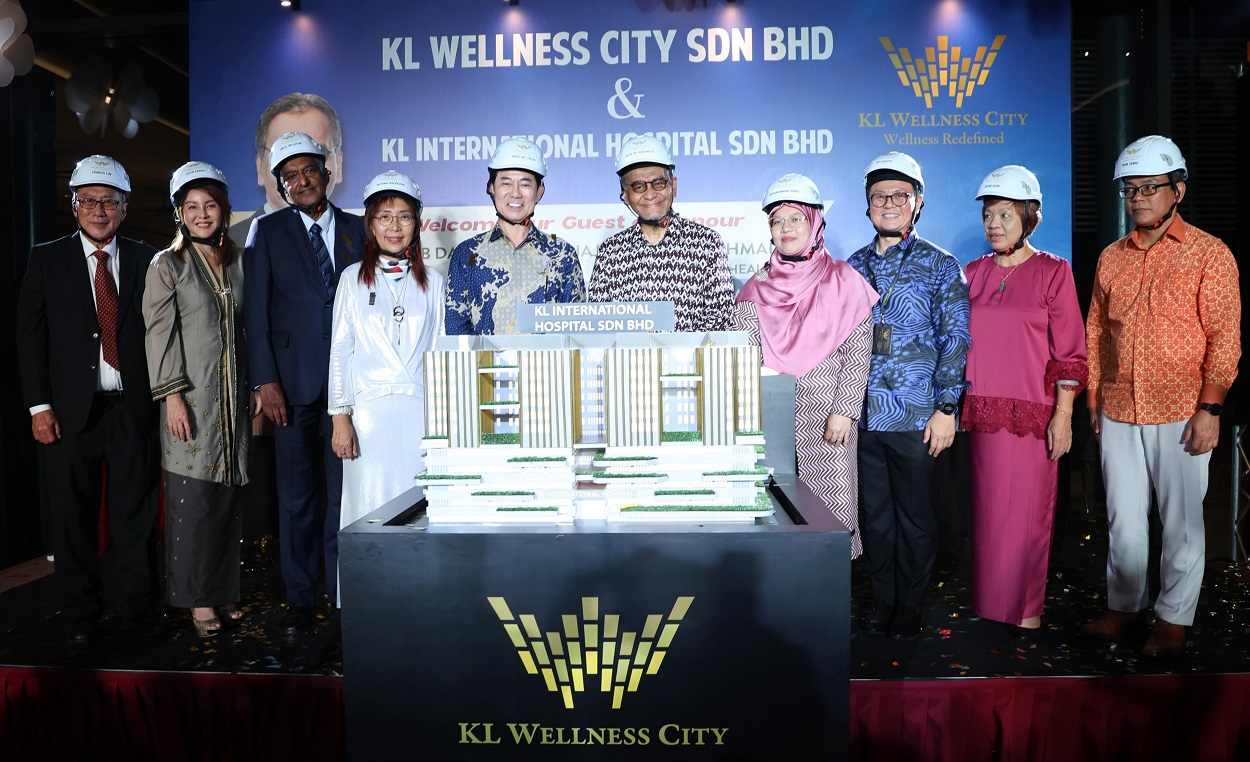When a doctor tells a person that he or she has lung cancer, how would that person feel?
To make matters worse, the person was informed that the cancer had reached stage four, an advanced stage where cancer cells have spread to other organs.
It is no surprise if the patient is a heavy or chain smoker, as it is common knowledge that such smokers have a higher risk of contracting lung cancer.
But what if the patient is a non-smoker?
That is what had happened to 58-year-old non-smoker, Goh Sai Wah.
Goh, who had not taken even a puff of a cigarette in her entire life, was shocked when doctors informed her last year that she had stage-four lung cancer.
“Usually lung cancer attacks heavy smokers but there is no assurance that non-smokers will be free from this disease,” Dr Beh Chor Khim of Mahameru International Medical Centre told Bernama recently.
No specific victims
According to the website www.cancer.gov , lung cancer is among the most lethal killer diseases in the world, with 221,130 new cases reported each year.
The death toll is 156,940 in the United States alone this year.
In Malaysia, statistics from www.infosihat.gov.my revealed that lung cancer is the most common type of malignancy and has claimed the most number of fatalities, 12 per cent of the total number of cancer-related deaths.
The risk of contracting this cancer cannot be taken lightly even by non-smokers.
For those in areas where air quality is below the desired level, the risk of contracting this disease cannot be discounted.
Sources say the risk of contracting this cancer is 20 per cent higher for individuals who breath in unhealthy air.
The figures on passive smokers who have succumbed to lung cancer are also alarming. In the United States alone, lung cancer claims the lives of some 3,000 passive smokers each year.
There are two main categories of lung cancer – small-cell and non-small-cell. Both types have no specific victims.
Stress, diet
Dr Beh said environmental pollution contributes toward the risk of contracting this disease.
Those who breathe in smoke that contains asbestos particles (one of the six silicate minerals used for commercial reasons) face higher risk of contracting a lung cancer known as mesothelioma.
Individuals exposed to radon (radioactive gas) also have higher risks of getting the disease.
Dr Beh said those with a family history of the cancer are more susceptible.
“As for the non-smokers the probability of them contracting the disease is 30 per cent.
“Factors like stress and unhealthy diet, infectious diseases and viruses contribute toward contracting this disease,” said Dr Beh.
Hard to detect
Dr Beh admits it is quite difficult to detect cancer in its early stages. Many patients who have consulted him are already in stage four.
However, the disease can be prevented by taking comprehensive medical precautions, he said, adding that among the symptoms of the disease are difficulty in breathing, prolonged cough, chest, back and shoulder pain, facial swelling and hoarseness.
Others symptoms are bone pain, numbness in the upper and lower limbs, loss of appetite, malaise and weight loss.
A person suspected of having the disease should undergo a comprehensive medical checkup instead of only blood tests, advises Dr Beh.
“Blood tests alone are not able to detect cancer cells, hence a more comprehensive examination, including radiographs and endoscopy, is required,” he explained.
Dr Beh said Goh had a routine blood test that showed an increase in cancer indicators, so she decided to undergo a PET CT test that confirmed stage-four cancer.
Dr Beh recommends that anyone over 40 undergo a comprehensive medical checkup, once in three years.
There is hope
When lung cancer has reached stage four, it is believed to be quite late and the patient is not permitted to undergo surgery.
Doctors would usually recommend radiotherapy and chemotherapy to prolong and improve the quality of life.
This is what Goh experienced.
Despite undergoing chemotherapy six times, Goh did not show any Improvement, but everything changed when she decided to try Human Initiated Therapeutic Vaccine (HITV) therapy in Japan last year.
“In early 2009, I experienced muscle pains and went for foot reflexology treatment, but to no avail,” she said.
“At the same time, I also underwent blood tests and one day I was told that the cancer indicators in my body were on the rise. I was diagnosed as having lung cancer at stage four.
“Doctors said I could not undergo surgery, as the cancer had reached an advanced stage. Therefore, they recommended radiotherapy and chemotherapy.
“But Dr Beh told me of HITV therapy and we went to Tokyo to try it,” Goh said at the news conference on HITV therapy here recently.
Dr Beh said the results of the therapy came as a surprise, as all of the cancerous cells in Goh’s body have disappeared.
Immunology-based
HITV therapy, discovered by Dr Kenichiro Hasumi in 2005, has given new hope to all cancer patients, except those suffering from leukemia.
It took Dr Hasumi more than 40 years to discover the HITV method to treat cancer that has progressed to an advanced stage.
Previously, this immunology-based therapy, which utilizes the body’s immune system to fight the disease, was only available in Japan. It is now available at Mahameru International Medical Centre.
– Bernama












